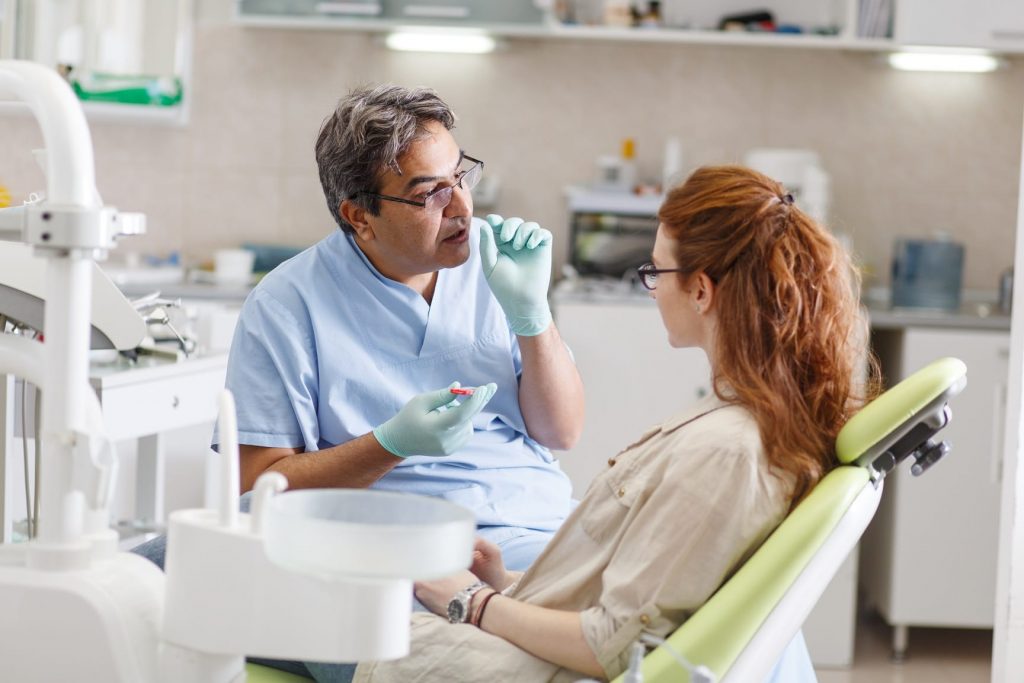Dental Examination
You may already recognize how important it is to maintain and improve your oral health, and how closely related your oral health and general health are. You eat well, brush your teeth properly twice a day and floss once a day. So if you take excellent care of your oral health through rigorously maintaining good oral hygiene, why do you still need to see the dentist every six to twelve months for a dental examination?

The Value of Dental Examinations
Just as is the case in many other areas in life, the prevention of oral health issues is far less costly and time-consuming and far more comfortable than the resolution of oral health issues. Following good oral hygiene habits is an important part of preventive care, as are regular dental examinations. The fact is that your dentist is trained to understand exactly to look at and see exactly what is going on in your mouth, and can therefore better detect oral health issues even when they are just beginning. You may be entirely unaware of certain situations until they become exacerbated and therefore far more uncomfortable and complex. You dentist can help to prevent this from occurring by examining your teeth and mouth regularly to determine whether there are any issues that need to be addressed.
Dental examinations should occur at least once every six months. In cases where patients have already encountered certain oral health issues or are suffering from certain illnesses or diseases, such as diabetes, the dentist may advise that they receive more frequent dental examinations in order to better protect their oral health.
A dental examination definitely includes cleaning and checking your teeth and mouth for cavities, gum disease and other abnormalities. Your dentist will evaluate your overall health and oral hygiene condition, your risk of tooth decay, root decay, gum or bone disease, and your need for tooth restoration or replacement. If you have had tooth restoration or replacement, such as fillings, crowns or implants, your dentist will check to ensure that these are in good order. He will also check your bite and your jaw for any problems, remove any stains or deposits that are on your teeth and determine whether you need fluoride. Your dentist will want to take x-rays of your mouth at least once a year in order to determine whether there are any issues occurring below the surface that need to be addressed and resolved, and they may also want to undertake other diagnostic procedures in order to better assess any potential situations they suspect may be occurring. A dental examination also usually includes discussing your diet, since certain foods and drinks can contribute to oral health issues, reviewing your oral hygiene habits (including the techniques as well as the tools you use to brush and floss your teeth), discussing any health conditions you may be experiencing and any medications you are taking (since these conditions and medications can affect your teeth and mouth), and discussing any lifestyle factors that may contribute to your oral health condition. If desired, the dentist may also discuss options for cosmetic improvements that can be made.
In some cases, your dentist may want to make a dental impression of your jaw or teeth in order to better evaluate your bite or to make an athletic mouthguard, a nightguard or bleaching trays. This, however, is not a normal part of regular dental examinations, and is something your dentist would thoroughly discuss with you beforehand.
Following your dental examination, your dentist will go over your risk of tooth decay, gum disease and other oral health issues, and will advise you about how best to protect and improve your oral health. Obviously the most ideal situation is that one simply never encounters any oral health issues. However, even individuals who maintain superior oral hygiene habits sometimes still encounter oral health issues that need to be addressed. By receiving regular dental examinations, the individual will better catch these issues early on, when they can be most easily treated.
For more information about dental examinations and to schedule your next dental examination, call Dr. Nurminsky today.
